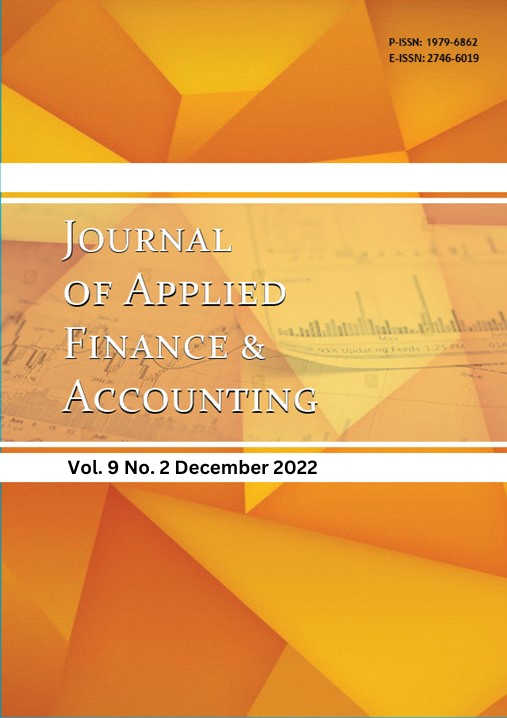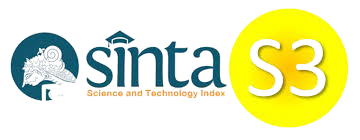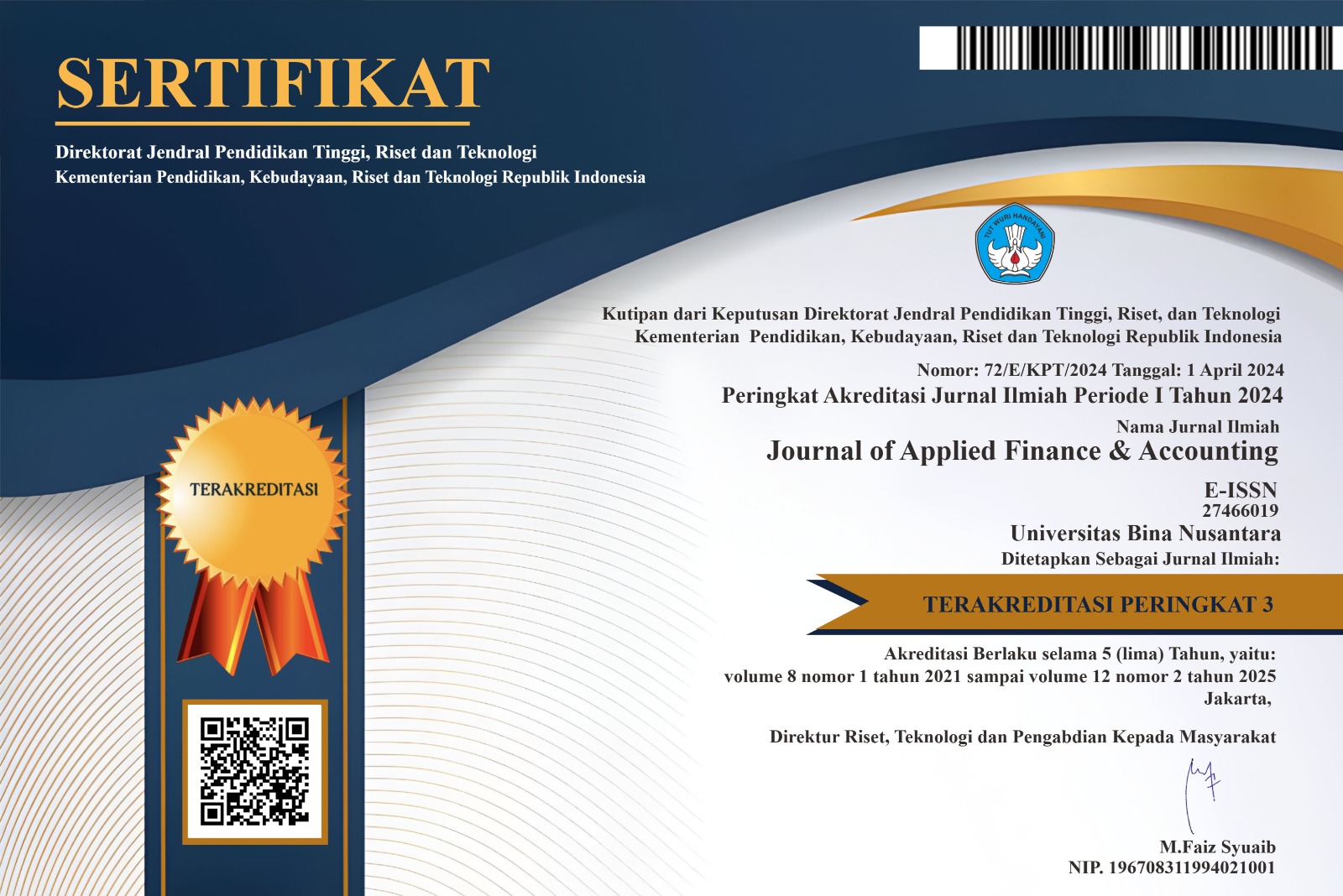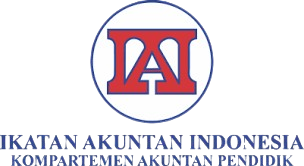THE EFFECT OF COMPENSATION SCHEMES, OBEDIENCE PRESSURE, AND SELF-EFFICACY ON BUDGETARY SLACK
DOI:
https://doi.org/10.21512/jafa.v9i2.8291Keywords:
Compensation Scheme, Obedience Pressure, Self-Efficacy, Budgetary SlackAbstract
Budgetary Slack is the most common problem when preparing a budget. Budgetary Slack occurs when there is a difference between the number of best budget estimates and the total budget proposed by subordinates. Several factors can affect budgetary slack, including compensation schemes, obedience pressure, and self-efficacy. This experimental study examines and analyzes the effect of compensation schemes, obedience pressure, and self-efficacy on budgetary slack. This experiment used a 2x2x2 between-subject experimental design; participant data was obtained by filling out a google form. Testing of participant data was used using Levene's test and univariate ANOVA. The conclusion is that budgetary slack is affected by the compensation scheme. Therefore, managers should be aware of the benefits and drawbacks of the pay plan that the firm will implement in advance.
References
Andre M. Sean., Lam Marco., O'Donnell Mark. (2014). The Effect Of Type And Direction Influence Tactic On Managers' Willingness To Add Budgetary Slack. Northeastern Association of Business, Economic and Technology Proceedings.
Anthony, Robert N., and Govindarajan (1998). Management Control System [Translation]. Jakarta: Salemba Empat.
Ardiyani, F., and Sukirno. (2017). Effect of Self Efficacy, Reward and Punishment, and Information Asymmetry on Budgetary Slack: Experimental Study in the Context of Participatory Budgeting. Nominal Journal, 6(1)
Baihaqi, Hatta M., Maisyarah., and Auditya L. (2017). The Effect of Obedience Pressure and Perceived Responsibility on Budgetary Slack. XX National Accounting Symposium, Jember.
Basyir Azmi, A. (2016). The Influence of Budget Participation, Information Asymmetry, and Individual Capacity on Budgetary Slack in Samarinda City Government SKPD. Journal of Economics and Finance Volume 13 (2).
Candra, M., and Helmayunita, N. (2019). Effect of Compensation Scheme and Self Efficacy on Budgetary Slack: An Experimental Study. Exploratory Journal of Accounting, 3(1), 906-921.
Chong, V.K., Leong, M.K.C. and Woodliff, D.R. (2021), "The Effect of Accountability Pressure and Perceived Levels of Honesty on Budgetary Slack Creation", Karim, K.E., Fogarty, T., Rutledge, R., Pinsker, R., Hasseldine, J., Bailey, C. and Pitre, T. (Ed.) Advances in Accounting Behavioral Research (Advances in Accounting Behavioural Research, Vol. 24), Emerald Publishing Limited, Bingley, pp. 1-28. https://doi.org/10.1108/S1475-148820200000024001
Grediani, E., and Sugiri, S. (2010). Effect of Obedience Pressure and Perceived Responsibility on Budgetary Slack Creation. XIII National Accounting Symposium, Purwokerto.
Helmayunita, N., and Betavia, AE (2019). Effect of Compensation Scheme, Self-Efficacy and Moral Reasoning on Budgetary Slack. Journal of Accounting State University of Malang, 4(1).
Lucyanda, J., and Sholihin, M. (2016). The Role of Gender and the Code of Ethics in the Moral Assessment of Budgetary Slack. XIX National Accounting Symposium, Lampung.
Ones, R., and Agustina, Y. (2016). The Effect of Obedience Pressure and Self Esteem on Budgetary Slack. Echo Economics Scientific Journal, 6(1), 779-796.
Tanudjaja, F. (2019). The Effect of Obedience Pressure, Personal Responsibility, and Self-Esteem on Budgetary Slack. (Undergraduate thesis, Widya Mandala Catholic University Surabaya, Surabaya, Indonesia). Obtained from http://repository.wima.ac.id/21213/
Downloads
Published
Issue
Section
License
Authors who publish with this journal agree to the following terms:
Authors retain copyright and grant the journal right of first publication with the work simultaneously licensed under a Creative Commons Attribution License that allows others to share the work with an acknowledgement of the work's authorship and initial publication in this journal.
Authors are able to enter into separate, additional contractual arrangements for the non-exclusive distribution of the journal's published version of the work (e.g., post it to an institutional repository or publish it in a book), with an acknowledgement of its initial publication in this journal.
Authors are permitted and encouraged to post their work online (e.g., in institutional repositories or on their website) prior to and during the submission process, as it can lead to productive exchanges, as well as earlier and greater citation of published work (See The Effect of Open Access).





